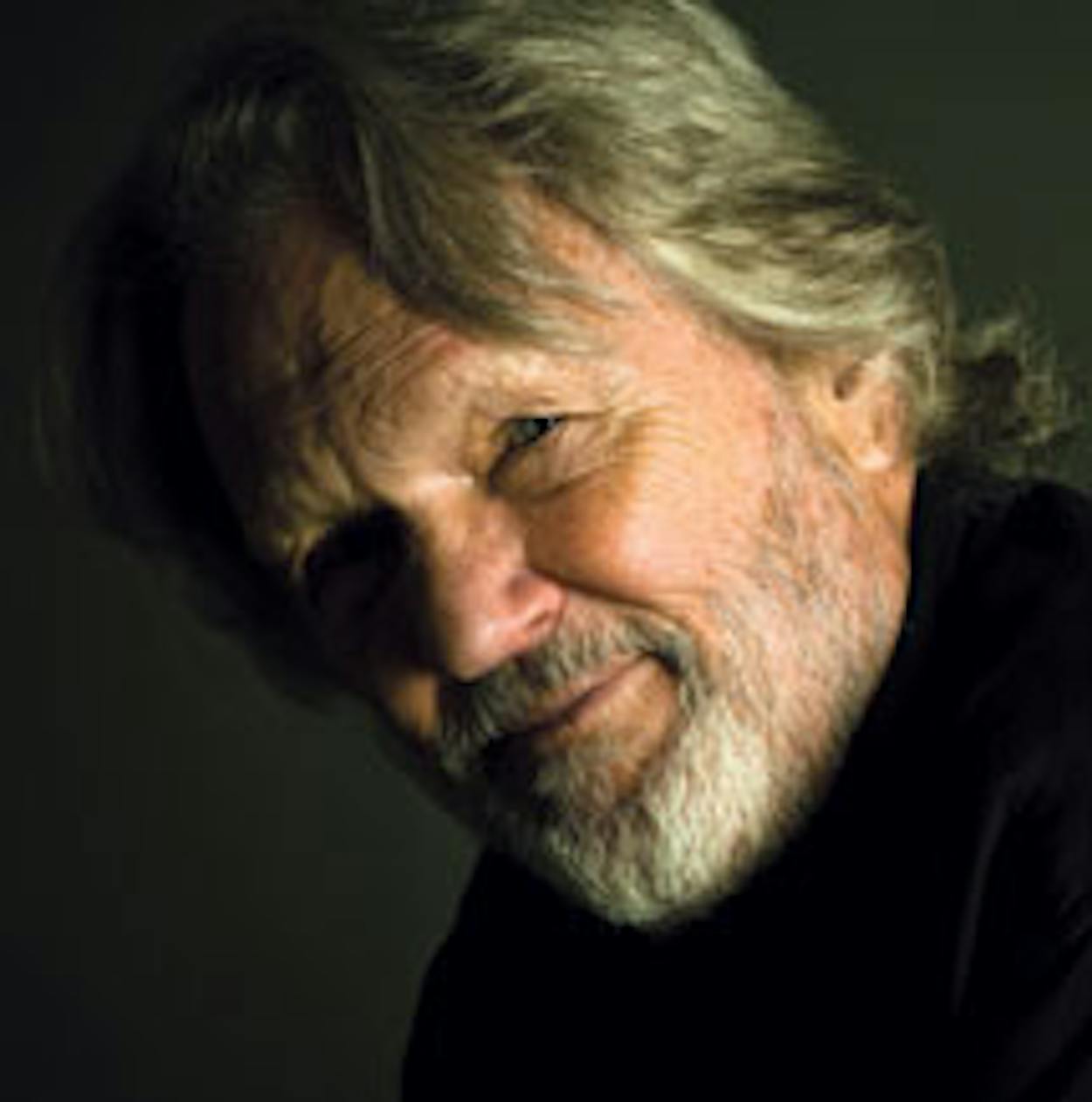The Brownsville-born Rhodes scholar and son of an Air Force general left his Oxford education and military career behind in 1965 to try his hand as a Nashville songwriter. He succeeded at that and more, becoming a star performer and a film actor. At 73, he’s had a recording renaissance with a couple of bare-bones sessions: This Old Road, from 2006, and Closer to the Bone (New West), out September 29.
You had a nomadic existence as a military brat, but what do you remember about Texas? I remember that Brownsville was my favorite place on the planet. We moved around, but we always moved back to Brownsville, until we left when I was eleven. Brownsville is at least as Mexican as it is Texan. They tell me I spoke Spanish before I spoke English.
You’ve had your share of classic hits—“Sunday Mornin’ Comin’ Down,” “Me and Bobby McGee”—but many of them were songs performed by others. That’s what I was trying to get to happen. I could cut any of mine, but to have Janis or Johnny Cash or Willie or Jerry Lee Lewis cutting—that was the greatest satisfaction, to see how different people would transform what I wrote.
Did you ever feel when you heard them doing your songs that you could do better? [Laughs] I have rarely heard something I didn’t think was done in the right direction. In general, I like other people’s versions of my songs better than my own.
Why’s that? They’re better singers. I love being able to perform my own songs and earn a living at it. But if I were going to choose to listen to somebody, it would be somebody like Hank Williams or Ray Charles.
Your list of films far outnumbers your list of albums, yet you consider yourself a writer first and foremost. If I hadn’t been known as a writer, I never would have been asked to perform. And if I hadn’t performed, I wouldn’t have caught the eye of somebody who wanted to put me in a movie. It’s all based on the writing.
The new album follows the model of This Old Road. They’re very spare sessions, produced by Don Was. This is very much a bit farther down “this old road.” When I’m out on the road now, it’s easier for me not having a band. While it was scary at first to go out by myself with a guitar and a harmonica, I’ve come to appreciate the freedom it gives me to be thinking on my feet. It’s a closer relationship between you and the audience, because you don’t have a band to hide behind. And the lyrics are clearer. I don’t think I realized that back when I was still feeling my way around.
“Good Morning, John” made me think of Johnny Cash. That was written for him. John was unlike anybody I’ve known, in that he was such an inspiration to so many of us. He always seemed larger than life, and my respect for him over the years continued to grow. He was a great man.
Talk about [guitarist and songwriter] Stephen Bruton, who worked with you on the album before dying of cancer, in May. I suspect these were some of his last sessions. Yeah, that was a blessing. Stephen has been my soul brother for so many years. We did a two-day back when he could still do it, when his head was all shaved; he loved it so much. I chose to think that he was not dying, but that wasn’t to be. I got to see him hours before he died, and he said, “I got to go to sleep now.” Stephen had a sense of humor that had us laughing from the first day. We were over in Russia and caused an international incident one night because he was playing his mandolin right in the face of one of these big Russian policemen. They were big enough to eat all of us. We saw each other through a lot of good times and bad.
Is the song “Closer to the Bone” about him? It’s about all of it. There’s a couple places about Stephen, but it’s really no different for all of us. We’re all heading for the same finish line.







